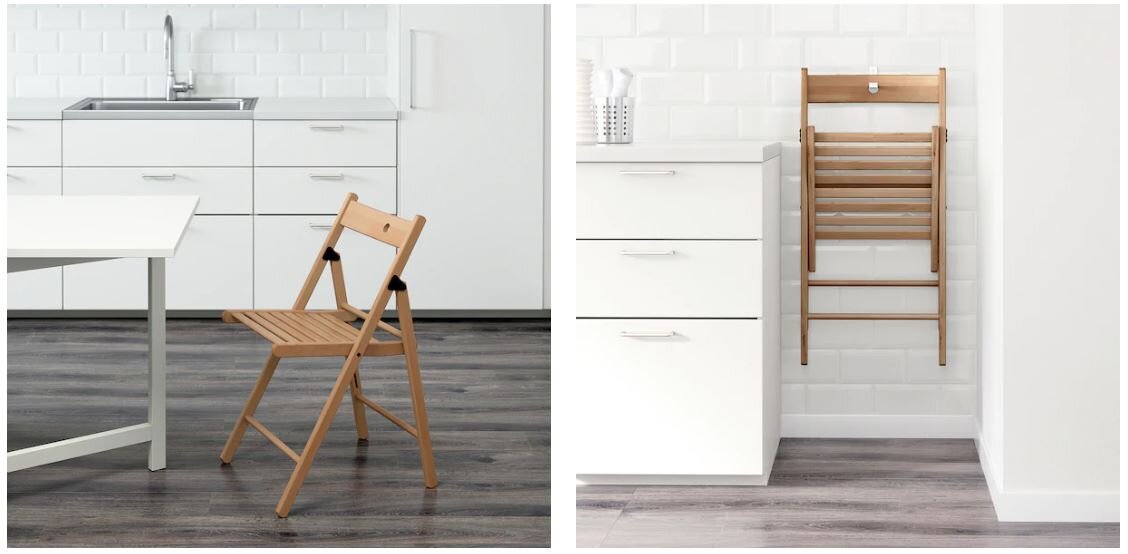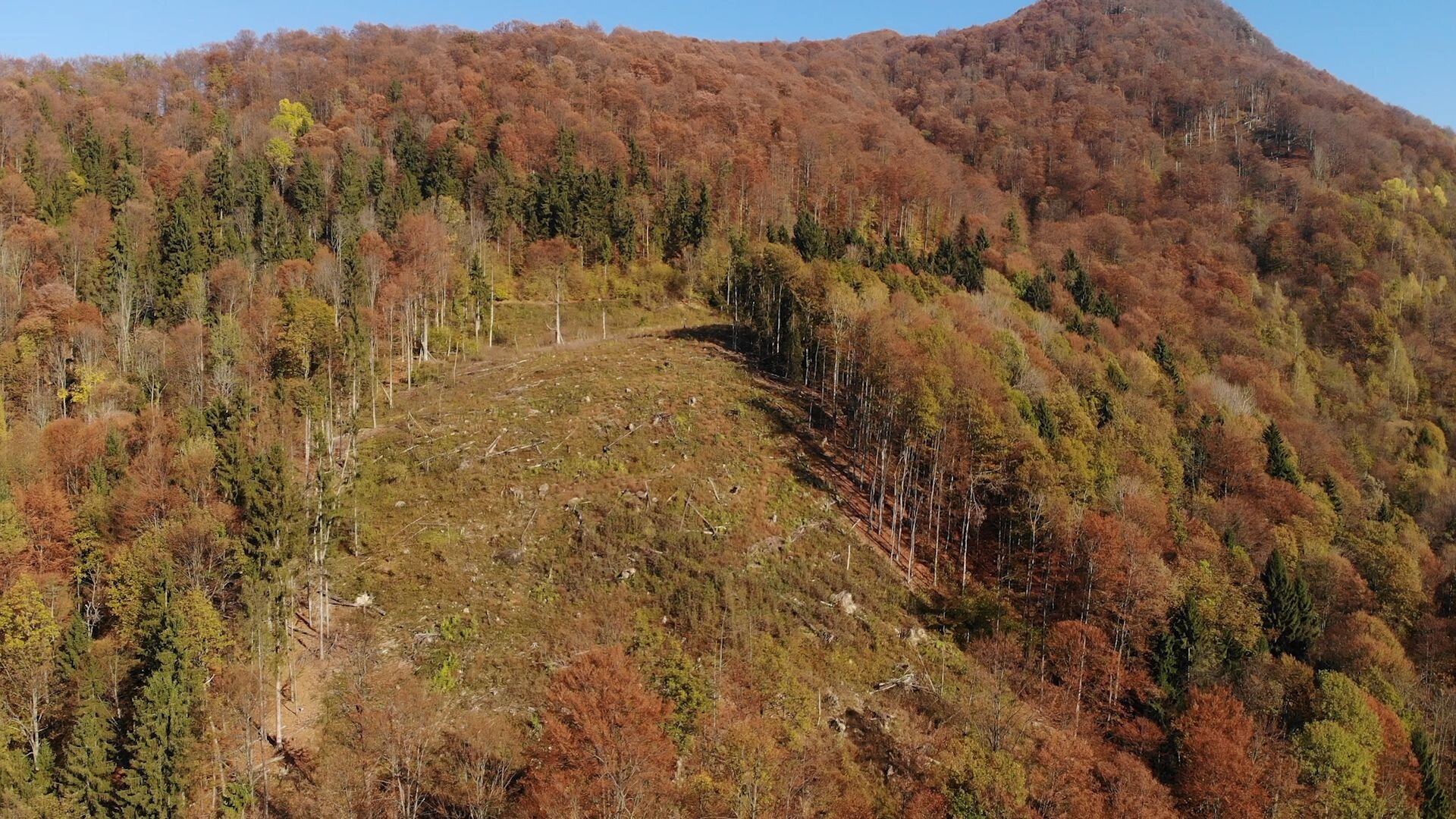A Ukrainian company allegedly supplied illegally sourced timber from the Carpathian Mountains to Swedish furniture retailer IKEA, the London-based environmental watchdog Earthsight has claimed in a new investigation.
The furniture chain subsequently used the wood to produce some of its best-selling chairs.
The environmental organization’s report calls into question the effectiveness of certification standards for timber and highlights rampant corruption and legal violations in the Ukrainian logging industry.
Earthsight researchers concluded that IKEA sells up to two million chairs a year containing wood supplied by Ukrainian company VGSM, which allegedly cut trees in natural forests during the animal breeding season, when logging is not allowed.
After the release of the report on June 23, IKEA told Reuters that “it would review its wood supply chain in Ukraine” and that “it had begun an independent audit.”
In a written reply to the Kyiv Post, VGSM denied any wrongdoing and pointed out a number of what it considers to be factual errors and legal misinterpretations by Earthsight.
The release of the report comes at a time when western Ukrainian regions have been hit by weeks of heavy rains that caused flooding and serious damages to homes and infrastructure.
Many Ukrainians have blamed the flooding on illegal logging in the Carpathians driven by the corrupt timber industry. Deforestation is one of the key contributors to climate change, which can cause extreme weather conditions.
Timber standards
In its wood procurement, IKEA has relied on the green label from the Forest Stewardship Council (FSC), the world’s most popular certification organization for wood.
In its 2018 report, Earthsight found that FSC audits failed to detect and acknowledge numerous irregularities and corruption in Ukraine’s state forestry enterprises. Little has changed since then, the watchdog found.
IKEA is the world’s largest consumer of wood. It has top-notch environmental policies and has funded nature protection projects in Ukraine, Romania and Russia.
FSC, on the other hand, is the go-to label that companies use to demonstrate they protect forests.
As leaders, they have to step up, Earthsight said.
“Where these organizations go, others follow. Where they don’t, others don’t,” Earthsight director Sam Lawson told the Kyiv Post in a written comment.
“By greenwashing (Ukrainian) timber exports to the European Union, FSC is arguably reducing pressure on the Ukrainian authorities to implement the reforms required,” he added.

IKEA’s Terje foldable chair made of allegedly illegally cut Ukrainian beech, according to Earthsight report. Many other well-known Ikea dining chairs like the Borje, Ingolf and Henriksdal are also made from Ukrainian beech, the report claims. (ikea.com)
Findings
According to Earthsight, IKEA used about 400,000 cubic meters of timber from Ukraine in 2018 and 2019. That is roughly 4,000 large truckloads of logs per year. Yet only one product in the company’s wide selection names Ukraine as “the country of manufacture.”
That is because most Ukrainian timber is sent to furniture factories in Slovakia, Hungary and Romania.
The largest supplier for IKEA in Ukraine is a wood processing company called VGSM based in Velyky Bychkiv, a village in Zakarpattia Oblast located 660 kilometers to the southwest of Kyiv on the Romanian border.
At least 96% of the company’s production is for the Swedish giant: a fraction of it is shipped directly to IKEA, but most is sent as parts to Plimob, a furniture maker across the border in Romania.
Some 90% of the beechwood used by VGSM comes from the Velyky Bychkiv state forestry enterprise. The enterprise manages the lush natural forests of slow-growing beech trees in the Carpathian mountains that are home to some of Europe’s last populations of brown bears and lynx.
VGSM harvests most of the timber itself under a contract with the FSC-certified Velyky Bychkiv state forestry enterprise.

Another site of illegal sanitary cutting detected in Velyky Bychkiv forestry enterprise during the 2018 inspection by Uktaine’s State Environmental Inspectorate ©Earthsight
For years, Ukrainian forestry enterprises have abused the country’s sanitary logging rule, which allows the harvesting of dying trees or those affected by pests, to illegally harvest valuable wood.
Moreover, Ukraine’s wildlife law banned any noisy activities, including sanitary felling, in forests from April to mid-June, the breeding period for animals and birds in the area, also called the “silence period.”
Earthsight and Ukrainian state inspectors found that, in 2018, the Velyky Bychkiv forestry enterprise allowed sanitary logging during the “silence period” at 109 different sites. Over half of those sites were marked for clear cuts in beech forests, where this practice of felling large areas of forest at once is forbidden. 60% of timber cut on these sites was from beech trees.
Earthsight claims it has evidence that the beechwood was further manufactured into IKEA’s popular chairs.
According to the watchdog, VGSM continued to log during the silence period in 2019 and this year in April and May, while the world was under strict lockdown due to the coronavirus pandemic.
VGSM denied that the sanitary logging it carried out during the silence period was illegal.
“Ukrainian law defines illegal logging as the harvesting of timber without a special permit, or logging ticket. The (Earthsight) report uses a very broad interpretation of the term as anything that is felled during the silence period,” the company said in a statement to the Kyiv Post, citing director Iryna Matsepura.
“Therefore, we reject the claim of illegal logging in the forests as they were carried out in full compliance with the national law: according to the contract, with the logging ticket available.”
The company said that Earthsight’s allegations arise from ambiguity in the legal definition of the “silence period” and the lack of clear procedure for implementing it, which leaves room for interpretation. Moreover, the law on the “silence period” conflicts with the rules for sanitary logging, which require urgent measures for affected trees, VGSM said.
VGSM also identified what it claimed were several inaccuracies about its production in the report. The company said that it has not manufactured components for IKEA’s Terje chairs, emphasized in the report, for 10 years.
Earthsight has called on IKEA to conduct independent audits of its suppliers in high-risk countries and push for reforms at FSC.
In the past, environmental activists pointed out the issues with FSC certification in Ukraine and the conflict of interests of local FSC auditors, who are often logging experts in forestry institutes and have close links with state forestry officials they are meant to monitor.
But at the core of the problem is IKEA’s “fast furniture” business model, Earthsight concluded.
It stimulates more consumption and waste and pressures suppliers to deliver more wood. Meanwhile, IKEA’s near-monopolist position on the market allows it to dictate prices for competing contractors who opt to sacrifice sustainability for profit.
